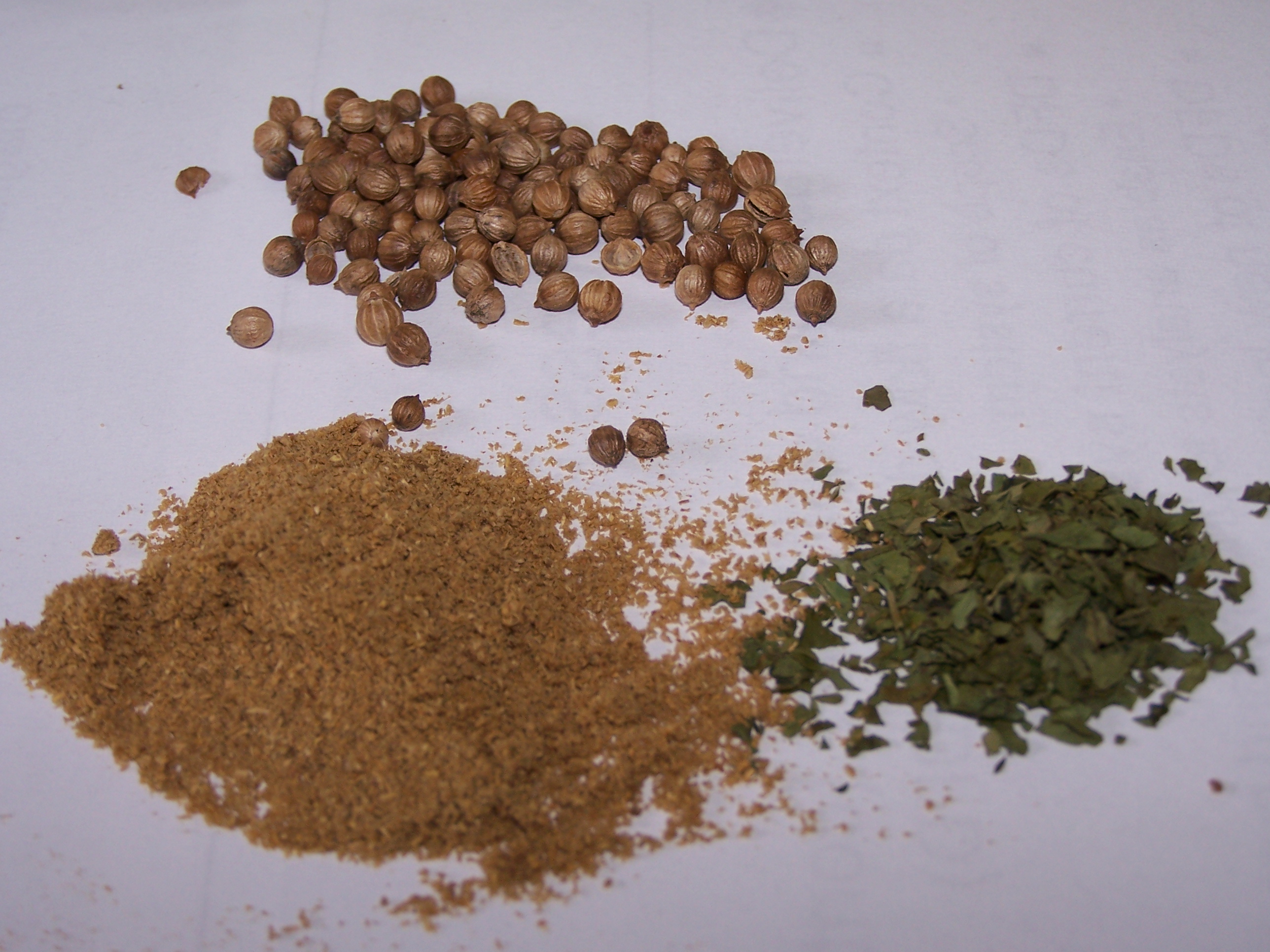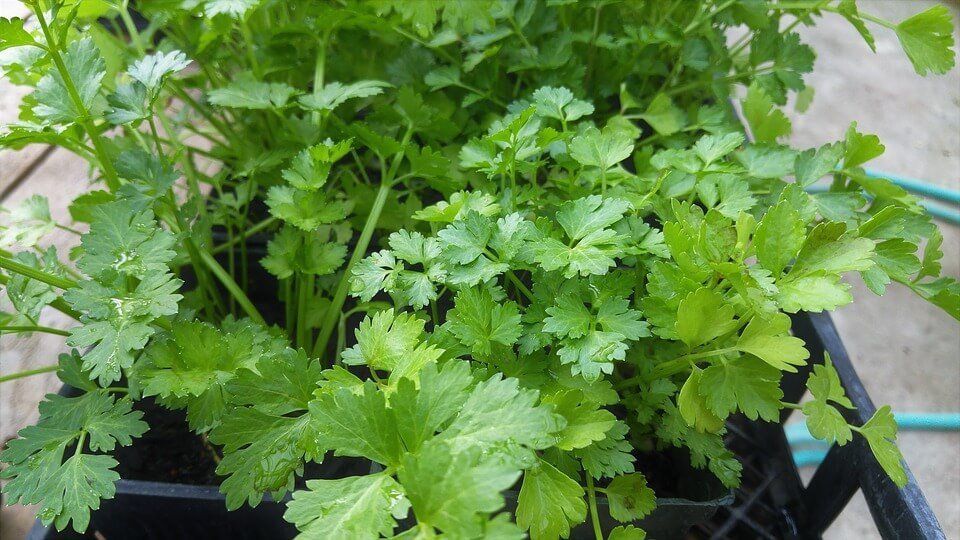Coriander (Cilantro) Is More Than Just An Aromatic Herb
Table of Contents
Coriander is more than just a herb or spice
Cilantro has healing power
Cilantro, also known as coriander (botanical name: Coriandrum sativum), is one of the oldest culinary herbs in the world. Especially in India, China, and Egypt, People have valued it for millennia.
Not only because of its sweetish spicy taste, but primarily as a medicinal plant.
The healing properties of the herb have been reported in Sanskrit scriptures and the Old Testament. Even the ancient medical pioneer Hippocrates praised Coriander as an herbal medicine. The green herb can reach heights of up to 60 centimeters, features white to reddish flowers, and produces brown to yellow fruits.
The seeds you can harvest from July to August. The high content of health-promoting phytonutrients and essential oils in Coriander is the reason for its effect.
In particular, for people with Indigestion, bloating, diarrhea, irritable bowel syndrome,
and chronic inflammatory diseases, for example, rheumatism, Coriander can provide relief. The herb has even been proven effective in treating infections and as a detoxifier.
Against digestive disorders
Ayurveda and Traditional Chinese Medicine (TCM) have utilized the healing properties of Coriander for a long time in the treatment of digestive disorders. Modern science is now interested in its soothing effect on the gastrointestinal tract. Applications range from loss of appetite and stomach pain, diarrhea, flatulence, and bloating to irritable bowel syndrome.
Phytochemicals, such as phenols, contained in the essential oil of Coriander, support our organism through the production of enzymes and digestive juices.
Even a cup of Cilantro tea can be a remedy for all (mild) gastrointestinal complaints.
Even more surprising is the oil’s potency against bacterial infections.
Cilantro oil against infections

Because of the increasing antibiotic resistance, Phytomedicine has been interested in Coriander for years as a natural antiseptic.
The essential oil of the coriander seed is considered a strong germ fighter. The ingredient linalool is an antimicrobial that fights bacteria and fungi.
Scientists at the University of Beira Interior, Portugal, have tested coriander oil against twelve bacterial strains, including Escherichia coli and Salmonella, which are repeatedly responsible for food poisoning.
The tests showed that even a solution of only 1.6 percent coriander oil kills almost all bacteria, or at least significantly restricts their multiplication. These findings underscore the value of Coriander as a preventive food and its potential as a natural food additive. For medicinal purposes, coriander is considered a natural antibiotic.
Cilantro is a natural antibiotic.
The antibiotic effect of the herb led a Californian-Mexican research group specifically back to the substance dodecanal.
In a study, scientists isolated the antibacterial substance from fresh coriander leaves.
Tests have proven that a naturally occurring antibacterial substance is twice as effective as the antibiotic gentamicin, which is typically used against Salmonella.
We were surprised that dodecane is such a strong antibiotic. Because most natural antibacterial agents are rather weak, Dr. Isao Kubo of the University of California at Berkeley.
It is worthwhile to integrate both fresh Coriander and coriander seeds into the diet.
The cilantro also contains a high amount of antioxidants and provides chlorophyll, which strengthens our immune system and helps combat inflammation.
Antioxidants against inflammatory diseases
Another argument for the healing power of Coriander is the presence of antioxidants, which are mainly found in the coriander leaves. Especially effective against inflammatory disorders is the concentrated coriander leaf extract.
Scientists have found that patients with chronic inflammatory diseases, such as rheumatism, have underperformed in producing many antioxidants in the body. The exceptionally high incidence of antioxidants in coriander leaves can help to reduce inflammation.
However, even the seeds of the herb appear to be effective against chronic inflammatory diseases.
This confirmed research by the All India Institute of Medical Sciences (AIIMS) in New Delhi.
“We have carried out this experiment after we have become aware of the anti-inflammatory and anti-rheumatic properties of Coriander in traditional medical teachings such as Ayurveda,
explained Dr. Surender Singh in the Indian Journal of Medical Research.
To cleanse and remove heavy metals.
European naturopathy utilizes coriander, especially to remove heavy metals from the body, which can be found in the air, drinking water, and food. Toxic metals such as mercury, cadmium, lead, and aluminum are so dangerous because they accumulate in the tissues, weaken the immune system, and may eventually lead to diseases like Alzheimer’s or cancer.
Read here, Cilantro and Chlorella can Remove 80% of Heavy Metals from the Body within 42 Days.
A Japanese study clarified the relationship between mercury and cancer, finding mercury in all cancer cells.
Mercury vapor from amalgam fillings leaks and gets into our organisms.
Coriander is capable of releasing large amounts of mercury from the tissues.
As part of detoxification after tooth renovations, the use of concentrated coriander extract is recommended in combination with chlorella and wild garlic to help ensure the elimination of toxins.
Also, read >HOW TO USE HEALTHY AROMATIC HERBS INSTEAD OF SALT
INFOGRAPHIC: COOKING WITH HERBS
You can assist in daily detoxification and strengthen your immune system.
Do you wonder how you can integrate cilantro into your diet?
Spice up your food with fresh Coriander or ground coriander seeds.
Cilantro adds spice to your diet!
Like most herbs, it easily mixes with sweet fruits for a smoothie. In Asian salads, the Coriander herb is a harmonious component. Chopped coriander adds a spicy, herbal note to vegetable soups. In Dips like Salsa, Cilantro is a must. As an ingredient of curry.
Coriander seeds refine Ayurvedic dishes.
Or how about a homemade cilantro pesto?
Use instead of basil, a handful of fresh cilantro leaves, half a cup of pine nuts, a clove of garlic, two tablespoons of lemon juice, and five tablespoons of olive oil in a blender, and enjoy the creamy pesto to gluten-free whole grain pasta, like buckwheat noodles.
Delicious Cilantro Dressing Recipe
For medicinal tea, you can use both the coriander leaves and the seeds.
Pour 150 ml of hot water over the fresh leaves or half a teaspoon of the seeds and let the infusion brew for 15 minutes.
The tea is both appetizing and beneficial for digestion.






